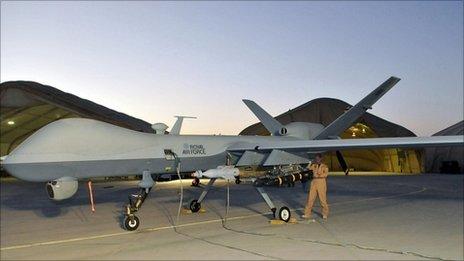Drone safeguards urged by UK pilots' association Balpa
- Published
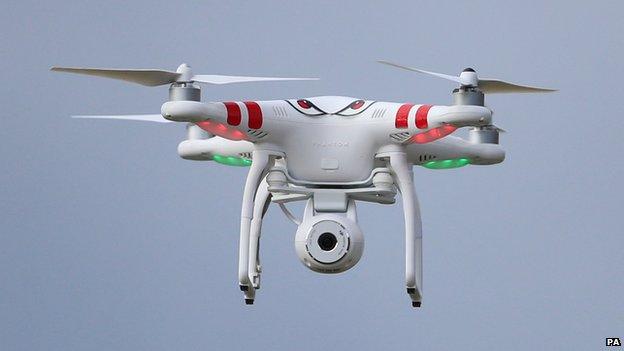
Strict regulations will need to be introduced before large drones are allowed to appear in the UK's skies, pilots association Balpa has said.
It says the public must be protected against remotely-controlled drones sharing airspace with regular aircraft.
Current rules on small drones could not apply to commercial operators, such as those carrying cargo, Balpa's chief is to tell a House of Lords committee.
The government says "robust safety measures" will remain in place.
The call from Balpa follows a number of incidents involving drones which have raised safety concerns.
A recent report, external from the UK Airprox Board, which investigates near-miss incidents in UK airspace, said on 30 May one drone may have been flown "deliberately close" to a passenger plane and could have caused a collision.
The drone came within 25m (82ft) of a plane coming in to land at Southend airport. The report assessed the risk of collision as "high", and that the drone had been flown close enough to the plane "to cause its pilot concern".
Drones, which are officially known as Remotely Piloted Aircraft Systems (RPAS), range in size from small craft operated by enthusiasts, TV companies, police forces and surveyors and weighing a few kilograms, to larger military devices.
Balpa says remote aircraft the same size as small passenger planes could be operated commercially in the UK within 10 years.
It says they must meet the same safety standards as piloted aircraft and tough security measures at ground level be in place to ensure they cannot be seized or their computer systems hacked. A full public consultation should also be carried out before government rules on larger commercial drones are introduced.
'Safe drone zone'
Balpa general secretary Jim McAuslan said: "The UK should become a 'safe drone zone' so we can make the most of the major business and leisure opportunities offered by remotely piloted aircraft, while protecting passengers, pilots and residents.
"Large unmanned aircraft, when they come, should be as safe as manned aircraft and the British public should be fully consulted before companies fly large, remotely-piloted aircraft over their homes alongside passenger planes."
Dozens of clips appear on the internet showing the aircraft, which can be bought for £300, over populated areas of the UK.
Current Civil Aviation Authority (CAA) rules, external prohibit the flying of large drones over or within 150m of built-up areas and require operators to have permission and demonstrate basic flying skills.
Smaller unmanned aircraft, weighing less than 20kg, only need permission from the CAA if they are being used for aerial work or if flown within a congested area or close to people or property.
A Department for Transport spokesman said: "Civilian RPAS are closely regulated by the Civil Aviation Authority and are treated in the same manner as equivalent manned aircraft.
"Robust safety measures are currently in place to ensure that large RPAS are segregated from other airspace users. We will not allow the integration of RPAS with other air traffic until RPAS can demonstrate that this can be done safely.
"The UK is at the forefront of efforts to develop Europe-wide regulations on unmanned aircraft to become a global leader in this field. We are currently looking at how we can further engage with the public on this issue."
- Published27 October 2014
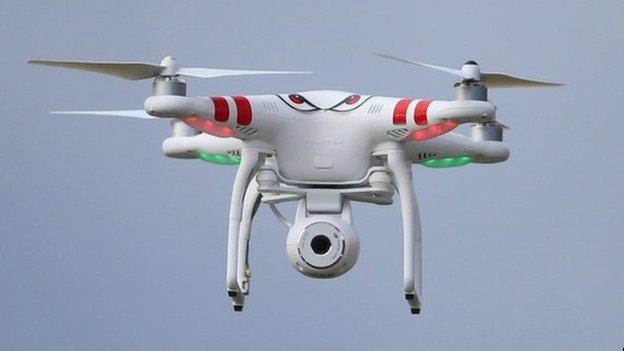
- Published23 October 2014
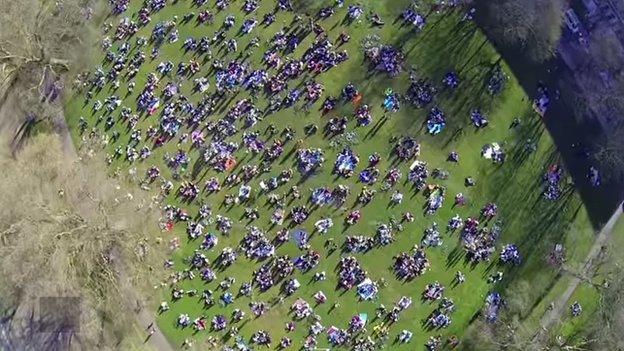
- Published22 October 2014
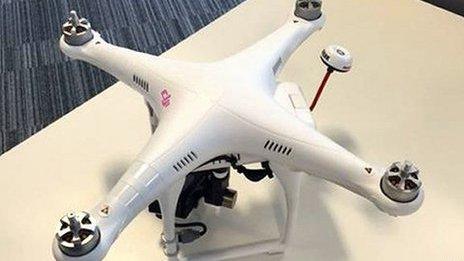
- Published27 April 2013
